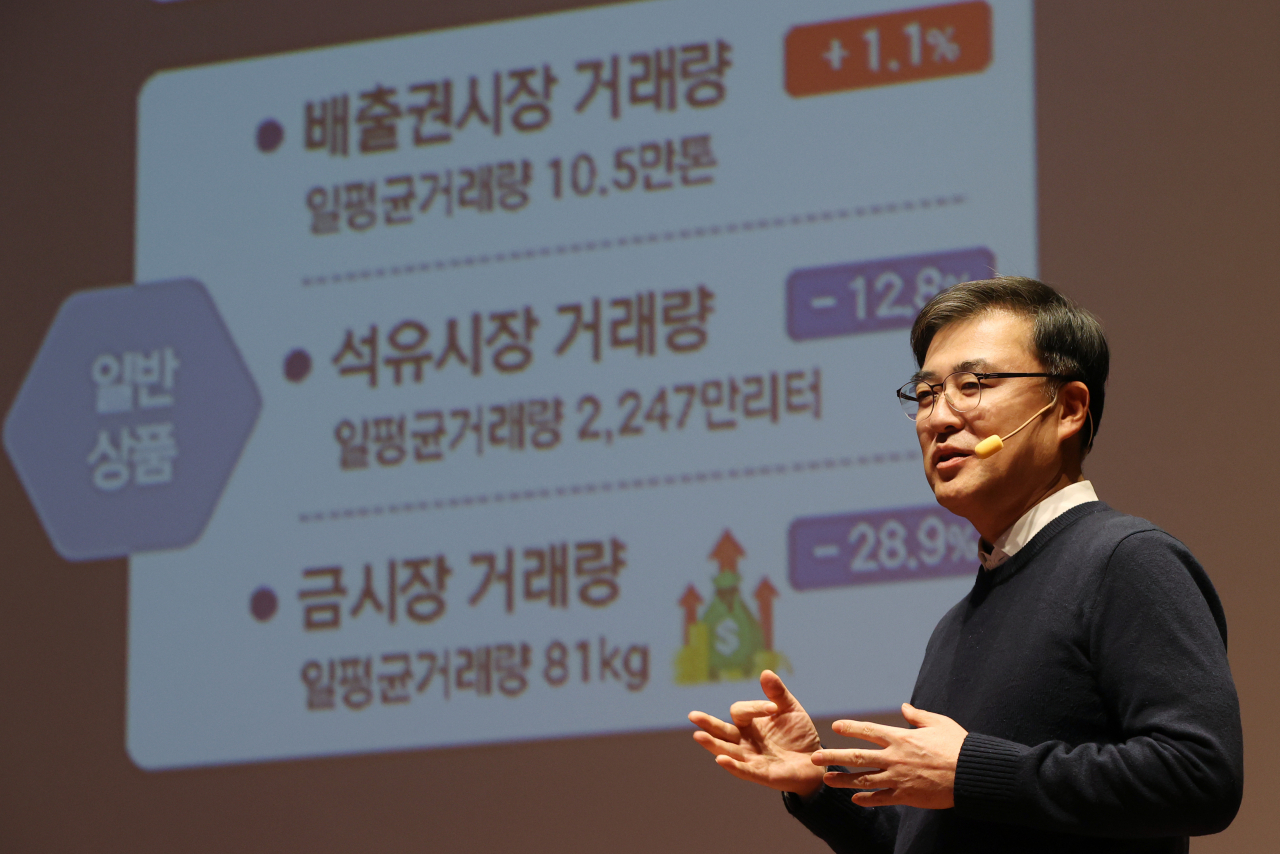
The Korea Exchange unveiled a series of plans on Tuesday to transform the country's trading system in line with global standards, aiming to overcome the undervaluation of the domestic stock market.
The bourse operator said it will push to open the derivatives market 15 minutes earlier at 8:45 a.m. Currently, the local derivatives market opens at 9 a.m. at the same time as the securities market.
“By opening the derivatives market a little bit earlier, global events can be reflected on the market beforehand, reducing the volatility of the equity market in turn,” Chairman Sohn Byungdoo said at a press event held at the bourse operator’s headquarters in Yeouido, Seoul, Tuesday.
Sohn explained that the institute is also working on allowing the derivatives market to be operated at nighttime.
“For individual investors, this will make managing volatility risks from global events much easier,” Sohn said.
The changes in the derivatives market operation hours is part of the Korea Exchange’s effort to battle the yearslong perception of the "Korea discount" with the local capital market being undervalued by foreign investors due to North Korean threats and strict regulations.
As part of the effort, the Korea Exchange will work to foster a foreign investor-friendly transaction environment, in cooperation with local financial regulators.
As previously announced by the Financial Service Commission, the investor registration system for foreigners will be scrapped and the omnibus account system will be revived. Authorities will encourage the over-the-counter transactions of foreign investors.
The bourse operator will also adopt a mandate for listed firms to make regulatory filings in English. The mandate policy will first apply to Kospi-listed firms with assets worth more than 10 trillion won ($8.1 billion) in 2024 and 2 trillion won in 2026.
The dividend payout system will be improved to attract more foreign investment.
Currently, listed companies decide on the amount of dividends in March, months after confirming who will receive the dividends in December, unlike other major countries. The system has been under attack for discouraging foreign investors, as they have to make investments without knowing the dividend amounts beforehand.
"Investments are made in blind sight," Sohn said. "We will have companies make announcements on the amount of dividends and the record date beforehand."
The Korea Exchange also promised to lead the paradigm of the capital market with dynamic assets.
In preparation for introducing a competitive alternative trading system, which is currently in talks, the bourse operator will work to embrace the digital securities market, where security token offerings, or STOs can be traded.
STOs refer to digital tokens supported by blockchain technology, representing a stake in financial instruments such as securities.
To create a sustainable financial environment, the Korea Exchange will step up its environmental, social and governance management by encouraging listed companies to disclose their ESG efforts. It said it will push to mandate all Kospi-listed firms to disclose their ESG information through filing reports by 2030.
“We will work to swiftly respond to environmental changes surrounding the financial market with an action plan,” Sohn said. “(The Korea Exchange will) lead the ‘next normal’ of the capital market in cooperation with market participants.”





